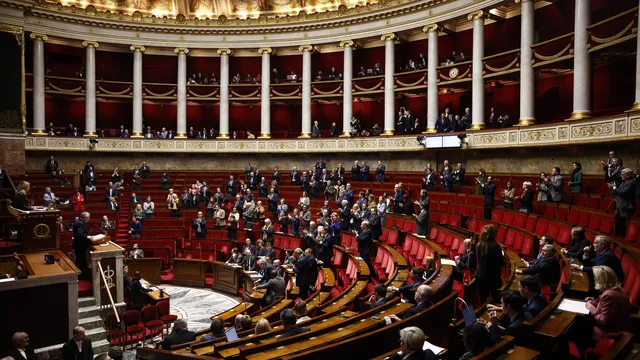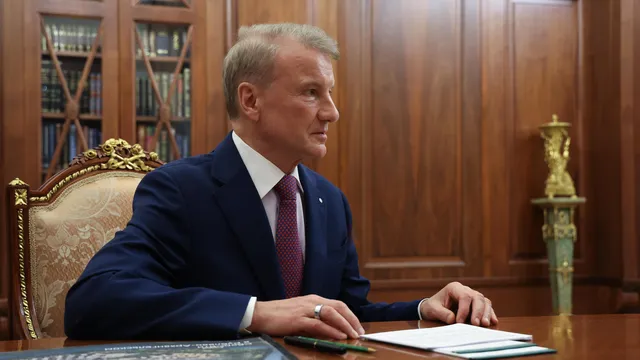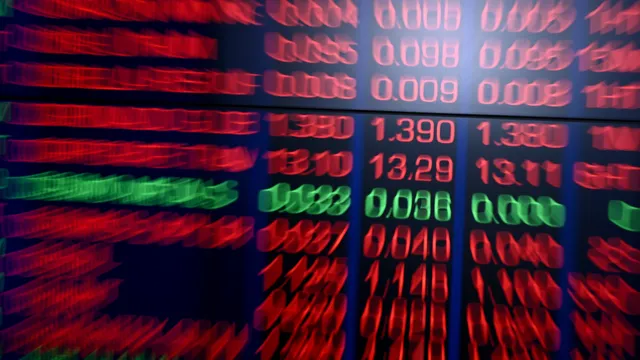Political uncertainty is fueling fears of a recession in Europe's second-largest economy, where fragile economic growth has recently shown surprising resilience despite the negative impact of trade tariffs.
Despite promising signs in the economy, France urgently needs to consolidate its finances, with the deficit standing at 5.8% of GDP and debt reaching 113% by the end of 2024.
The necessary spending cuts are politically controversial and led to the fall of Prime Minister Michel Barnier's government last year.
On September 8, 2025, current Prime Minister François Bayrou may face a similar fate in a vote of confidence he called in an attempt to secure the National Assembly's support for a €44 billion budget savings plan. The opposition, which has a majority in parliament, has vowed to oust him, leaving the country in political and economic uncertainty.
What are the risks for the economy?
With no clear path forward for households, businesses, and investors, the country's fragile growth could lose momentum.
The French economy is struggling to gain momentum; annual GDP growth has remained below 1% since the fourth quarter of 2024.
However, quarterly growth increased by 0.3% in the second quarter compared to the first three months of the year. This follows growth of 0.1% in the first quarter, showing resilience at a time when US President Donald Trump began imposing tariffs on his trading partners.
Meanwhile, the latest data shows that France's manufacturing sector began to grow in August for the first time in two and a half years.
Despite the weaknesses of the French economy, analysts believe that the political crisis is unlikely to push it into recession.
Jeremy Peloso, chief European strategist at BCA Research, said that "French institutions are strong," meaning that a potential political "transition will be smooth."
"The impact on economic activity will be limited to political uncertainty and a decline in consumer and business confidence. But even there, the effect is likely to be small," he added.
A different perspective from the business community
France's largest business federation, Medef, has the opposite opinion.
Patrick Martin, president of the organization, warned that political uncertainty leads to "a freeze on investment, a loss of confidence, an increased risk of bankruptcies, and job losses."
"If businesses cannot invest, growth and jobs collapse, and France risks recession," Martin said.
He pointed out that certain sectors such as construction, chemicals, hotels, and restaurants are already in crisis. He also warned against new tax increases that could curb business activity—the key to the growth needed to reduce the deficit and debt.
Why does France need to tighten its belt?
According to Prime Minister François Bayrou, spending cuts and tax increases are necessary to reduce the budget deficit from an expected 5.4% this year to 4.6% of GDP.
On August 31, in an interview with French television, Bayrou called the current vote of confidence "decisive for the fate of the country."
France's financial situation is indeed difficult. According to the French statistical service (INSEE), the country's debt amounted to €3.345 trillion at the end of the first quarter of 2025. While in the early 2000s the debt was 60% of GDP, it has grown to 116% this year.
In an interview in June, Budget Minister Amélie de Montchalin even said that France risks having its finances placed under the supervision of the International Monetary Fund (IMF) or European institutions – a fate that befell peripheral countries such as Portugal and Greece after the 2008 financial crisis.
However, European Central Bank (ECB) President Christine Lagarde, who headed the IMF for years, dismissed this possibility on French radio station Classique.
"Countries turn to the IMF when they have a serious current account deficit and cannot meet their obligations. This is not the case with France today," Lagarde explained.
She added that she was concerned about the situation in France.
Jérémy Pelozo is also convinced that France will not fall under IMF supervision.
"France will not go under IMF control. The country is not yet like Argentina or Greece," he said.
Although the country's government bond yields have risen, signaling investor concerns, "France's ability to raise capital remains intact, and that is what matters most in the end," Peloso added.
Currently, borrowing costs show that the government's net interest payments are reaching nearly 2% of GDP—the highest level in a decade, but still "relatively controlled." However, based on current trends, these costs could increase significantly over the next few years.
Another effect of the political crisis is the increased risk of a downgrade of France's sovereign debt rating, leading to a further rise in bond yields.
"It is very likely that France will see its credit rating downgraded and be 'kicked out' of the AA club (the category of highest-rated bonds)," Peloso said, predicting a further rise in yields if this happens.
Long-term consequences of political paralysis in France
If the current government loses the vote on Monday (September 8), many believe that President Emmanuel Macron will appoint a new prime minister. But the political paralysis will remain.
So far, it seems that no centrist government appointed by the president can avoid falling when presenting the budget. Analysts expect that the situation will not change significantly until 2027, when Macron's term expires and the balance of political forces may change.
Until then, the next government's goal will likely be much more modest, Oxford Economics notes in a recent report. In the current complex political environment, the priority will be to pass a budget without causing the government to fall. This reduces expectations for significant fiscal consolidation before the 2027 presidential election, meaning that France's debt is likely to continue to grow. | BGNES
---------------
Dolores Katanić, Euronews

 Breaking news
Breaking news
 Europe
Europe
 Bulgaria
Bulgaria







